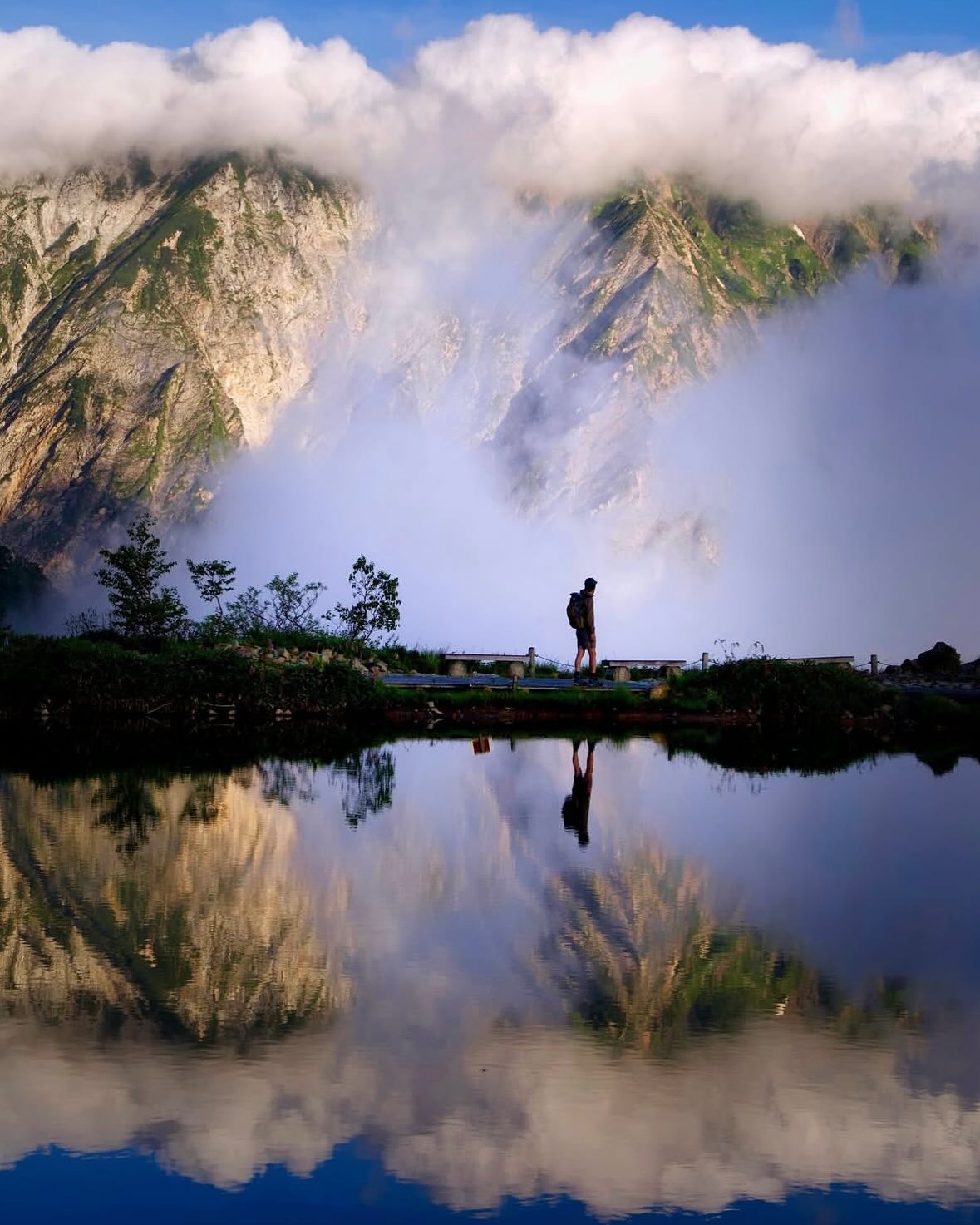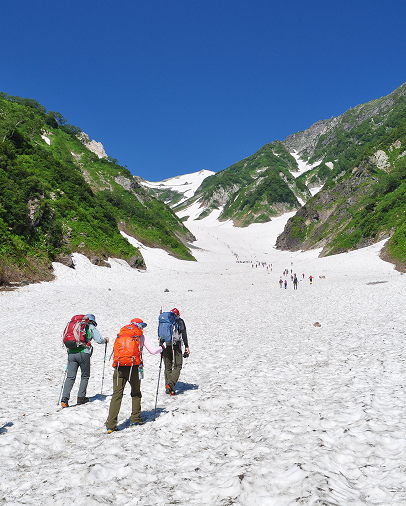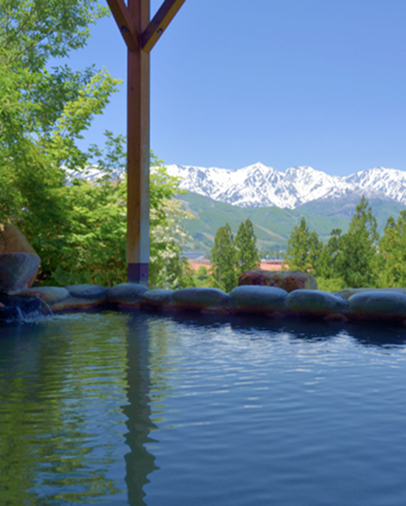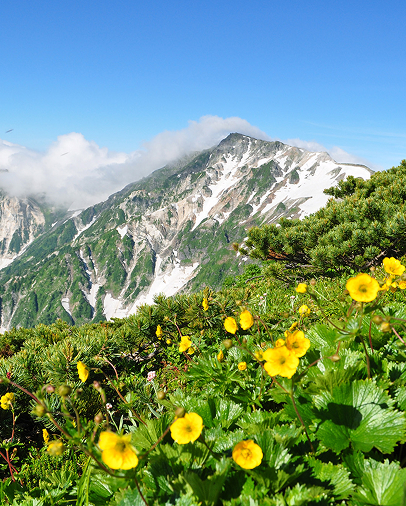登山・トレッキング
アクティビティー
Respecting Hakuba Trail Etiquette – Leave No Trace

The trail cuts sharply upward ahead of me, switchbacking through the evergreen and beech trees. Sweat drips, but I continue to climb. Peaks rise in every direction, snow-capped, even in summer.
As another hiker approaches, I step aside to let them pass. They nod and say “Konnichiwa.” It’s a small moment, but it says a lot.
Out here, respect matters — for the land, for each other, and for the mountain itself.
In Hakuba, hiking etiquette isn’t a formality; it’s part of what makes these trails work — a shared effort to protect a landscape that’s as unforgiving as it is beautiful.
Hakuba Trail Hiking Etiquette: Quick Checklist
Essential Tips:
- File a hiking plan before setting out (Tozan Todoke)
- Stay on marked trails — never cross green ropes
- Yield to uphill hikers
- Greet others on the trail with a friendly “Konnichiwa”
- Keep Noisenoise low
- Pack out all trash (yes, even biodegradable waste)
- Do not take rocks, plants, or other natural items
- Avoid trail running or filming in fragile zones
- Follow all hut and toilet rules
- Hike with others when possible
Fragile Alpine Ecosystems
Hakuba lies within Chūbu Sangaku National Park, one of Japan’s most protected alpine regions. Much of the trail network traverses high-altitude ecosystems with shallow soils, rare alpine plants, and steep gradients that erode quickly.
The Japanese conservation principle of “現状維持” (genjō iji) — maintaining the current natural beauty— drives many of the rules in these zones. The goal isn’t to “improve” the land, but to preserve it exactly as it is for the next person who comes along.
Cultural Norms and Community Stewardship
Hiking in Japan is as much about culture as it is about nature. Trail etiquette reflects shared values of mutual respect, harmony with nature, and responsibility to others on the trail. Locals, hut staff, and volunteers invest heavily in maintaining these paths — and they expect hikers to do their part.
Key Principles of Hakuba Trail Etiquette
1. File a Hiking Plan (Tozan Todoke)
In Hakuba and many other mountainous areas in Japan, you’re expected to file a hiking plan before starting your trek. This can often be done online or at trailhead boxes.
Why it matters:
- Helps rescue teams locate you in case of an emergency
- Shows awareness and preparedness
- Builds a culture of accountability
Even for day hikes, submitting a plan is considered good manners.
2. Stay on Marked Trails
Do not stray from the designated path. In high-alpine areas, such as those around Hakuba Ōike and Happo-ike, leaving the trail can cause irreversible damage.
- Never step over green ropes. These mark protected zones or areas under restoration.
- Don’t cut switchbacks or create new paths.
- Avoid resting or stopping in areas with vegetation.
Once alpine vegetation is crushed, it can take years to recover — if it does at all.
3. Yield to Uphill Hikers
On narrow trails, descending hikers should always yield to those coming uphill.
- Step to the side of the trail carefully — preferably toward the mountainside.
- If you’re part of a group, make enough space early and clearly.
This practice reflects a respect and ensures you can safely pass on exposed slopes.
4. Greet Fellow Hikers
A simple “Konnichiwa” or “Otsukaresama Desu” is expected when passing others on the trail.
- Creates a sense of connection
- Let others know you’re there (useful for safety)
- Reinforces mutual respect
Silence isn’t rudeness in Japan — but ignoring others on the trail can feel careless.
5. Keep Noise to a Minimum
- No music on speakers
- Keep voices low, especially near huts or scenic points
- Avoid shouting or calling unless necessary
Preserving the quiet of the mountains is deeply valued. It allows wildlife to stay undisturbed and helps everybody enjoy the experience more fully.
6. Take Nothing, Leave Nothing
Japan’s version of Leave No Trace goes a step further than many international standards:
- Do not collect rocks, leaves, or flowers
- Don’t leave marker tape, cairns, or signs
- Pack out everything, including food scraps and tissues
Even seemingly harmless items like fruit peels or toilet paper can take weeks to decompose and attract wild animals to trails.
7. Avoid Running or Filming in Fragile Areas
Trail running is not banned in Hakuba, but it is strongly discouraged in national park zones.
- Fast movement increases erosion, especially on steep or damp trails
- Filming crews or drone operators have drawn criticism for causing damage in the past
- Past social media posts have sparked backlash after visible trail damage
Move slowly and consciously in alpine areas. If you want to run, stick to designated trail running zones outside the national park.
8. Use Facilities Responsibly
Mountain huts and toilets are part of the Hakuba hiking experience — and they rely on hiker cooperation.
- Follow all posted rules
- Never leave trash in or around facilities
- Don’t occupy spaces not meant for resting or camping
Staff often hike in supplies and hike out waste. A little respect goes a long way.
9. Don't Hike Alone
While not a strict rule, solo hiking is discouraged in Hakuba.
- Group hiking is safer in unpredictable mountain weather
- Injuries and disorientation are harder to manage alone
- Cultural norms favor shared responsibility over individualism
If you must hike solo, file a detailed plan and carefully check the conditions
What Happens When the Rules Are Ignored
- Straying off the trail leads to trail widening and vegetation loss
- Trash and food waste attract animals and spoil the scenery
- Fast movement or drone use causes visible scars on delicate terrain
- Social media backlash: locals do notice and call out poor behavior
Hakuba’s mountain zones aren’t just scenic — they’re protected, monitored, and deeply valued by local communities.
Quick Hiking Tips
- Using trekking poles to reduce fatigue.
- Treat the environment with respect and use common sense.
- Do not drink from natural water sources.
- Carry enough food and water with you.
- Check the weather before you go out.
- Let someone know where you are going and when to expect you back.
Leave It Wild
Hakuba’s trails are a privilege, not a given. Following hiking etiquette here isn’t about ticking boxes or avoiding fines — it’s about earning your place in a landscape that rewards respect.
You don’t need to be perfect. But you do need to be intentional. Slow down. Greet others. Stay on the path. And above all, leave the mountains just as you found them — or better.
For updates on trail conditions, safety, and hiking etiquette in Hakuba, consult:




